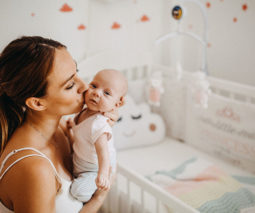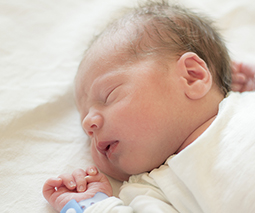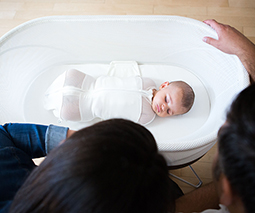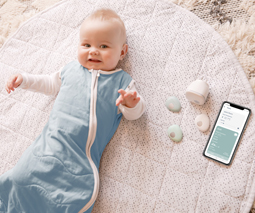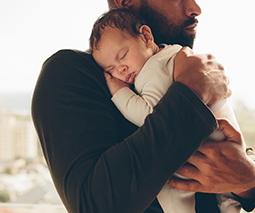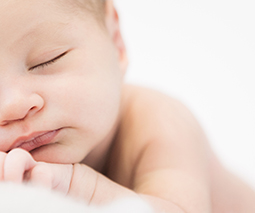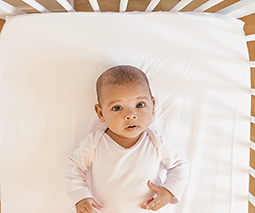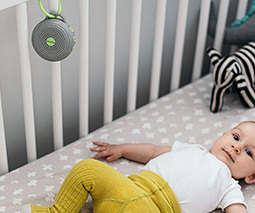Babies sleep better on their own, finds study. But what about SIDS?
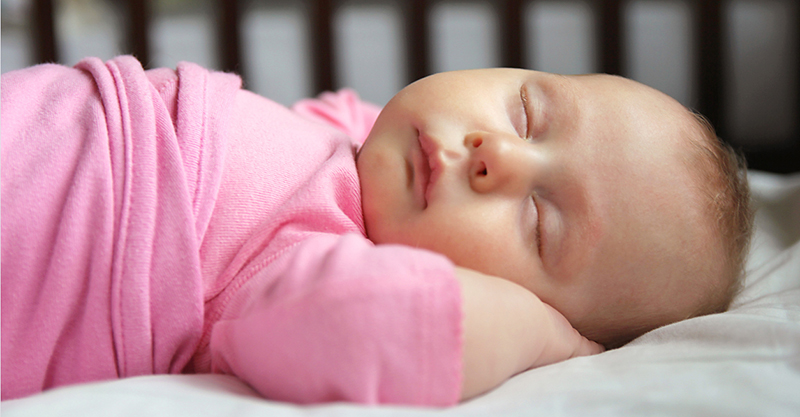
Straight from the ‘conflicting advice files’ comes this latest baby sleep study. It says babies at just four months old sleep better in their own rooms, and this is at odds with current safe sleep advice.
What happens when you boot out baby?
Babies who bunked in with their parents were found to have reduced stretches of sleep and were also more likely to end up sleeping in their parents’ bed. This was compared to those who snoozed alone in their own rooms at night from four months on. The study published in the journal of Pediatrics also found that the independent sleepers where more likely to have a consistent bedtime (8pm) and a regular going-to-bed routine.
Of the 300 families who took part in the study, half were encouraged to move their baby at three months old to wherever they were going to sleep at one year old. The other half received in-home nurse advice on reducing SIDS risk.
The study also examined questionnaire data completed by the babies’ mothers at four, nine, 12 and 30 months old around sleep duration, location, night waking, night feedings, bedtime routines and sleep behaviours.
Independent sleepers win
Out of the two groups, the independent sleepers got more sleep. At four months old, they were found to sleep longer – gaining 40 minutes more shut-eye than the room sharers. At nine months old, the independent sleepers slept for an average of 10.5 hours at night, compared to a 9.75 hours per night of room sharers. At 30 months, independent sleepers slept more than 45 minutes longer at night than those who were room-sharing at 9 months.
A safe nights sleep
While the research shows babies may sleep better and longer alone, it conflicts with current safe sleep advice. Red Nose recommends parents share a room with their baby for the first six to twelve months of life. They advise the safest way for a baby to sleep is:
- Sleep baby on the back from birth, not on the tummy or side
- Sleep baby with head and face uncovered
- Keep baby smoke free before birth and after
- Provide a safe sleeping environment night and day (safe cot, safe mattress, safe bedding, safe environment)
- Sleep baby in their own safe sleeping place in the same room as an adult caregiver for the first six to twelve months of life
- Breastfeed baby
The lead author of the study has acknowledged the safe sleep implications but suggests that separating babies from their parents could also result in a safer sleep environment.
“Perhaps our most troubling finding was that room-sharing was associated with overnight transitions to bed-sharing, which is strongly discouraged by the American Academy of Pediatrics,” said Dr Ian Paul.
“The desire to optimise infant sleep duration and consolidation must be balanced with safe infant sleep.”
While separating babies from their parents may result in more sleep, other research shows that most SIDS deaths occur when infants are one to four months old, with 90 per cent occurring before the age of six months, arguing that parental presence in infancy is necessary.
Happier babies?
We all know that well-slept little ones means a happier day for all, but is separating infants from their parents at night really the answer? And should they be? I’m thinking about night breastfeeding logistics and also that unique mother-baby bond which causes you to wake even before your baby cries for a feed, as well as parental presence for safety.
So what to do?
If you’re also scratching your head after reading this, the best thing to do is to simply stick with whatever sleeping arrangements works best for you and your baby (as long as they are safe!). Some babies sleep through the night at 9 weeks-old (not many though) and are happy transitioning to their own room sometime later. Others on the other hand, need much more help. Sleep is a vexed topic among parents and while one baby in your mothers’ group may be a dream sleeper, another may be the opposite and his poor mother looks like she could benefit from going to sleep school too, if just to get a chance to lie down!
 Need some more baby sleep advice? Our Parent School sleep experts can help. Click to find out more or book a one-on-one session.
Need some more baby sleep advice? Our Parent School sleep experts can help. Click to find out more or book a one-on-one session.
